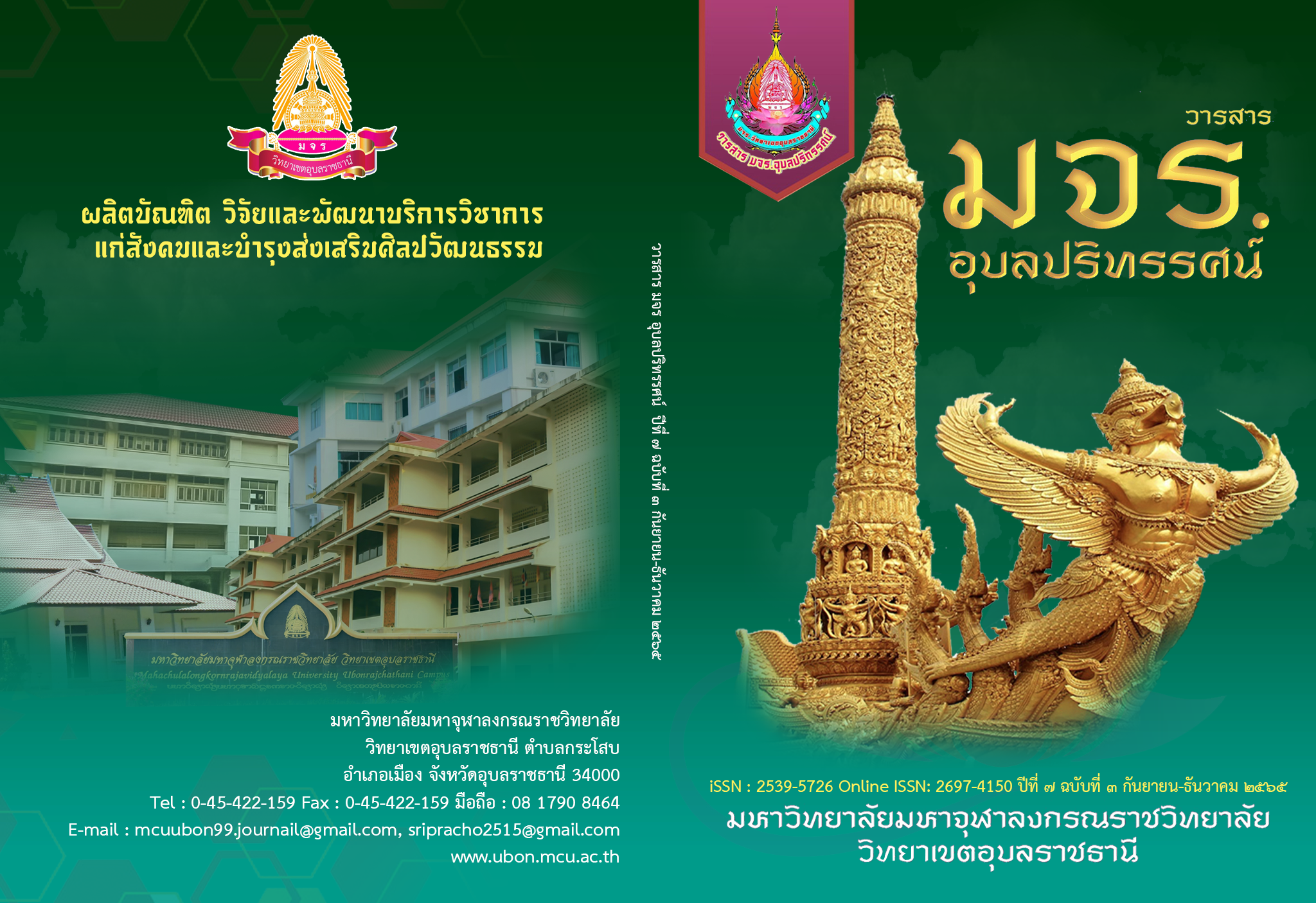ความสัมพันธ์ของมนุษย์ในยุคสมัยของความพลิกผัน
Main Article Content
บทคัดย่อ
บทความนี้มีวัตถุประสงค์เพื่ออธิบายความสัมพันธ์ของมนุษย์ในยุคสมันของความพลิกผันนั้น พบว่า มนุษย์นอกจากจะเป็นส่วนหนึ่งของสิ่งแวดล้อมแล้ว การกระทำของมนุษย์ยังมีผลโดยตรงต่อการเปลี่ยนแปลงสิ่งแวดล้อมและพฤติกรรมของมนุษย์มีความสำคัญต่อสิ่งแวดล้อมทั้งทางตรงและทางอ้อม รวมทั้งส่งผลดีและผลเสียต่อสิ่งแวดล้อม เพราะมนุษยสัมพันธ์ หมายถึง กระบวนการจูงใจ ให้ผู้ปฏิบัติงานภายใต้สถานการณ์ที่เป็นอยู่ให้เกิดความพึงพอใจในงาน และความสามารถ ทำงาน ให้ประสบผลสำเร็จตามเป้าหมายขององค์กรได้ มนุษยสัมพันธ์ ช่วยทำให้มนุษย์มาอยู่ร่วมกันเป็นสังคม ไม่ว่าสังคมขนาดเล็ก หรือขนาดใหญ่ แต่ละคนที่มาอยู่ร่วมกันนั้นต่างก็มีความแตกต่างกันในเรื่อง ความรู้ความสามารถ ประสบการณ์ เจตคติ รสนิยม ความคิดเห็น เชาวน์ปัญญาและในการบริหารเชิงสถานการณ์ เพราะการบริหารในยุคนี้ค่อนข้างเป็นปัจจุบัน ปรัชญาของการบริหารเริ่มเปลี่ยนแปลงไปจากการมองการบริหารในเชิงปรัชญาไปสู่การมองการบริหารในเชิงสภาพข้อเท็จจริง เนื่องจากในปัจจุบันมนุษย์ต้องประสบกับปัญหาอยู่เสมอ ด้วยความพลิกผัน จะทำให้เกิดการพัฒนาสวัสดิการสังคมด้วยการ“สร้างอย่างสร้างสรรค์” ซึ่งถือได้ว่ามีพลังอำนาจอย่างมาก เช่น องค์กรต่างๆ จะต้องเปลี่ยนวิธีคิดใหม่จากการควบคุมไปเป็นการส่งเสริมให้เกิดความร่วมมือในการสร้างสรรค์นวัตกรรมและการมองหาโอกาสใหม่ ซึ่งจะทำให้การรวมพลังจากคนจำนวนมหาศาลมาร่วมกันสร้างโดยเน้นการมีส่วนร่วมของประชาชนทำงาน ดังนั้น การพัฒนาจึงเริ่มจากความต้องการของชุมชนแทนความต้องการของหน่วยงานภาครัฐ มุ่งสู่เป้าหมายที่ประชาชนมีส่วนร่วมในกระบวนการร่วมคิด ร่วมทําร่วมพัฒนาชุมชน ให้มีความเข้มแข็งเพื่อเป็นพลังขับเคลื่อนสู่การแก้ไขปัญหาของสังคมและประเทศชาติได้
Article Details
เอกสารอ้างอิง
จินตวีร์ เกษมศุข. (2554). การสื่อสารกับการเปลี่ยนแปลงของสังคม. กรุงเทพฯ: สํานักพิมพ์
จุฬาลงกรณ์ มหาวิทยาลัย.
ราชบัณฑิตยสถาน. (2552). พจนานุกรม ฉบับราชบัณฑิตยสถาน พ.ศ.2525. พิมพครั้งที่ 5.
กรุงเทพฯ : อักษรเจริญทัศ.
เศรษฐพงศ์ มะลิสุวรรณ (2560). The year of Disruption. สมาคมโทรคมนาคมแห่ง
ประเทศไทยในพระบรมราชูปถัมภ์.ออนไลน์.สืบค้นเมื่อวันที่ 27 มกราคา 2564.
http://tct.or.th/images/article/special_article/256101/198410_Disruption.pdf
อำนวย แสงสว่าง. (2544). การจัดการทรัพยากรมนุษย์. พิมพ์ครั้งที่ 2. กรุงเทพฯ :
ทิพยวิสุทธิ์.
Aristotle.(1962). Nicomachean Ethics. Translated by Martin Ostwald.
Indianapolis: Bobbs-Merrill.
Clayton M. Christensen. (1997). The Innovator’s Dilemma: When New
Technologies Cause Great Firms to Fail . Harvard Business School
Press. Boston, Massachusetts.
Davis, Keith; & Newstrom, J. W. (1985). Human Behavior at Work :
Organizational Behavior. (7th ed.). New York: McGraw-Hill.
Fiedler, F. E. (1970) "Leadership experience and leader performance-another
hypothesis shot to hell." Organizational Behavior and Human
Performance 5: 1-14.
Hersey, Paul (1984 & 1997). The Situational Leader. Escondido, CA. The Center
for Leadership Studies .


